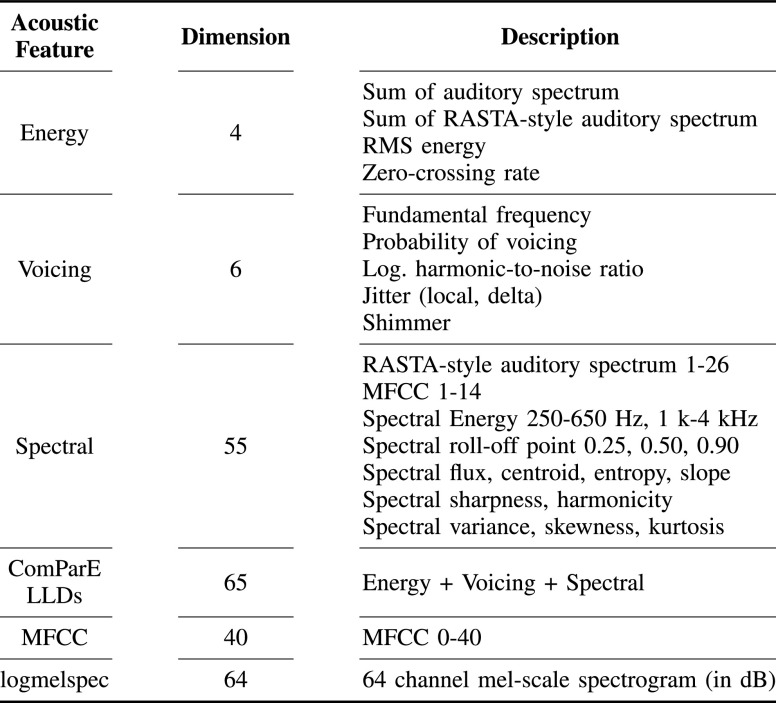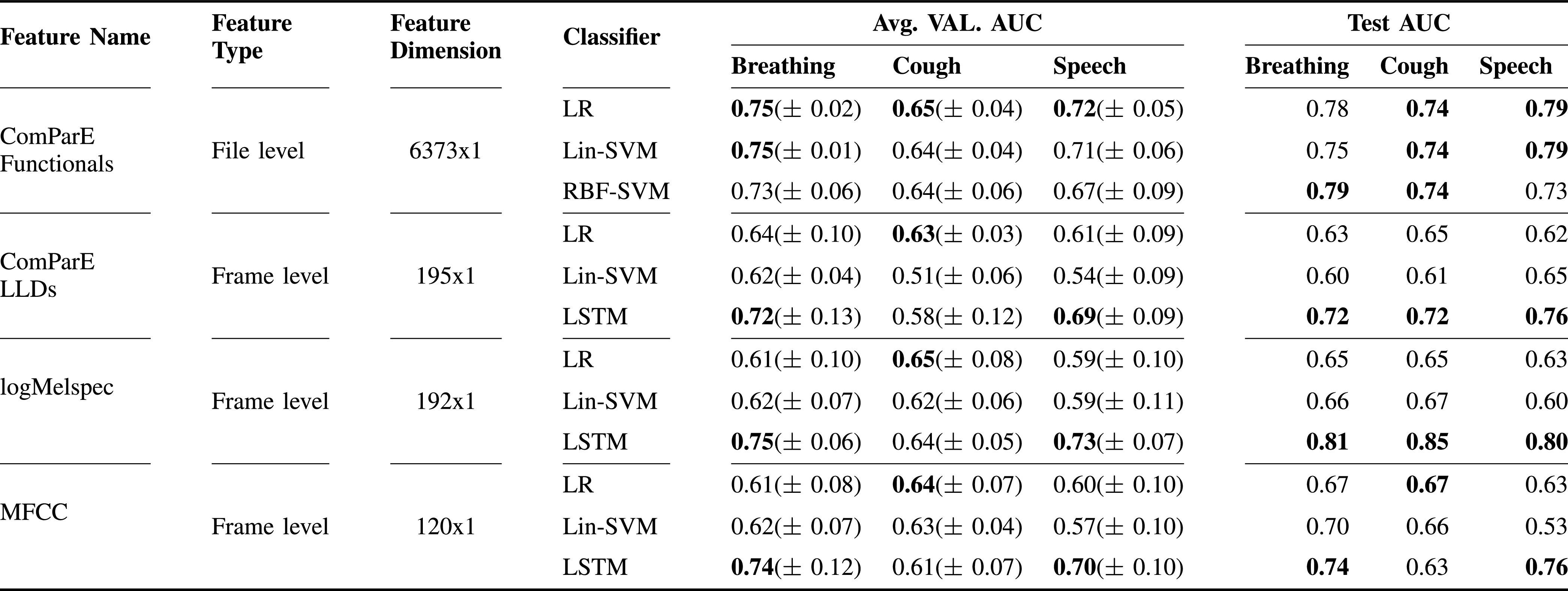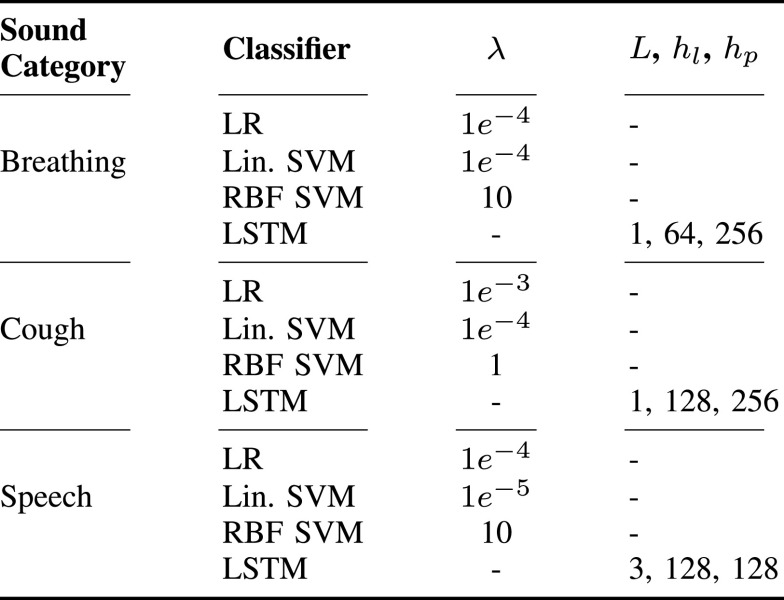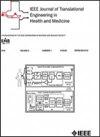Multi-Modal Point-of-Care Diagnostics for COVID-19 Based on Acoustics and Symptoms
IF 3.7
3区 医学
Q2 ENGINEERING, BIOMEDICAL
IEEE Journal of Translational Engineering in Health and Medicine-Jtehm
Pub Date : 2023-03-08
DOI:10.1109/JTEHM.2023.3250700
引用次数: 10
Abstract
Background: The COVID-19 pandemic has highlighted the need to invent alternative respiratory health diagnosis methodologies which provide improvement with respect to time, cost, physical distancing and detection performance. In this context, identifying acoustic bio-markers of respiratory diseases has received renewed interest. Objective: In this paper, we aim to design COVID-19 diagnostics based on analyzing the acoustics and symptoms data. Towards this, the data is composed of cough, breathing, and speech signals, and health symptoms record, collected using a web-application over a period of twenty months. Methods: We investigate the use of time-frequency features for acoustic signals and binary features for encoding different health symptoms. We experiment with use of classifiers like logistic regression, support vector machines and long-short term memory (LSTM) network models on the acoustic data, while decision tree models are proposed for the symptoms data. Results: We show that a multi-modal integration of inference from different acoustic signal categories and symptoms achieves an area-under-curve (AUC) of 96.3%, a statistically significant improvement when compared against any individual modality (



基于声学和症状的新冠肺炎多模式护理点诊断
背景:新冠肺炎大流行突出了发明替代呼吸健康诊断方法的必要性,这些方法在时间、成本、物理距离和检测性能方面提供了改进。在这种情况下,识别呼吸道疾病的声学生物标志物重新引起了人们的兴趣。目的:在分析声学和症状数据的基础上,设计新冠肺炎诊断方法。为此,数据由咳嗽、呼吸和语音信号以及健康症状记录组成,这些数据是使用网络应用程序在20个月内收集的。方法:我们研究了声学信号的时频特征和编码不同健康症状的二进制特征的使用。我们在声学数据上使用逻辑回归、支持向量机和长短期记忆(LSTM)网络模型等分类器进行了实验,而在症状数据上则提出了决策树模型。结果:我们发现,来自不同声学信号类别和症状的推断的多模态集成实现了96.3%的曲线下面积(AUC),与任何单个模态相比,这是一个统计学上显著的改进($p<;0.05$)。对不同特征表示的实验表明,mel声谱图声学特征在三种声学信号中表现相对较好。此外,对新的SARS-CoV-2变种记录的数据进行的评分分析突出了所提出的诊断方法对新冠肺炎检测的泛化能力。结论:所提出的方法为使用多模式数据集检测新冠肺炎,同时推广到新的COVID变体显示了一个有前景的方向。
本文章由计算机程序翻译,如有差异,请以英文原文为准。
求助全文
约1分钟内获得全文
求助全文
来源期刊

IEEE Journal of Translational Engineering in Health and Medicine-Jtehm
Engineering-Biomedical Engineering
CiteScore
7.40
自引率
2.90%
发文量
65
审稿时长
27 weeks
期刊介绍:
The IEEE Journal of Translational Engineering in Health and Medicine is an open access product that bridges the engineering and clinical worlds, focusing on detailed descriptions of advanced technical solutions to a clinical need along with clinical results and healthcare relevance. The journal provides a platform for state-of-the-art technology directions in the interdisciplinary field of biomedical engineering, embracing engineering, life sciences and medicine. A unique aspect of the journal is its ability to foster a collaboration between physicians and engineers for presenting broad and compelling real world technological and engineering solutions that can be implemented in the interest of improving quality of patient care and treatment outcomes, thereby reducing costs and improving efficiency. The journal provides an active forum for clinical research and relevant state-of the-art technology for members of all the IEEE societies that have an interest in biomedical engineering as well as reaching out directly to physicians and the medical community through the American Medical Association (AMA) and other clinical societies. The scope of the journal includes, but is not limited, to topics on: Medical devices, healthcare delivery systems, global healthcare initiatives, and ICT based services; Technological relevance to healthcare cost reduction; Technology affecting healthcare management, decision-making, and policy; Advanced technical work that is applied to solving specific clinical needs.
 求助内容:
求助内容: 应助结果提醒方式:
应助结果提醒方式:


